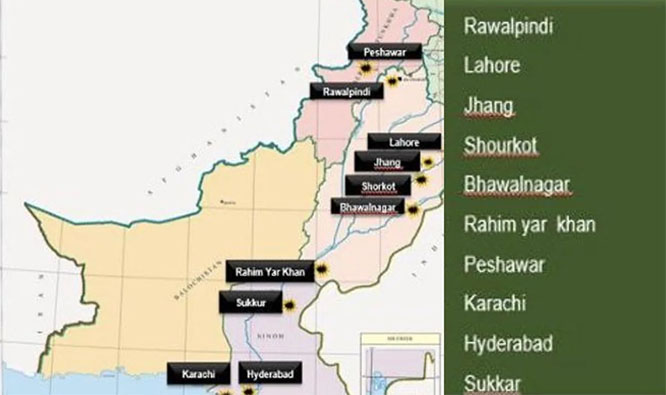
New Delhi, June 3: A classified Pakistani dossier has revealed that India’s airstrikes during Operation Sindoor were far more extensive than publicly acknowledged, targeting at least eight additional locations deep inside Pakistan. These findings shed new light on the scale of India’s retaliation following the deadly Pahalgam terror attack that claimed 26 innocent lives.
The dossier, part of Pakistan’s internal review of its counter-offensive dubbed Operation Bunyan un Marsoos, includes maps showing Indian strikes on previously undisclosed targets such as Peshawar, Jhang, Hyderabad (Sindh), Gujrat (Punjab), Gujranwala, Bahawalnagar, Attock, and Chor. These locations were notably absent from official Indian briefings by the Indian Air Force and the Director General of Military Operations.
The revelations suggest a deliberate strategic silence on India’s part, possibly aimed at compelling Pakistan to reveal the full extent of the damage while undermining its claims of inflicting significant retaliatory damage on Indian territory.
Earlier, India had confirmed precision strikes on nine key terrorist facilities, including Jaish-e-Mohammed’s headquarters in Bahawalpur and the Lashkar-e-Toiba training center in Muridke, along with locations in Pakistan-occupied Kashmir such as Muzaffarabad, Kotli, and Bhimber.
However, the new dossier underscores that India’s response was not limited to terror camps alone. In retaliation to Pakistan’s missile and drone attacks on civilian and military sites in India, the Indian Armed Forces reportedly struck eleven major Pakistani air bases, including Nur Khan, Rafiqui, Sargodha, Murid, Skardu, and Jacobabad, inflicting heavy damage.
The sheer breadth of these operations likely left Pakistan with little choice but to urgently seek a ceasefire, bringing the intense three-day escalation to an end.
Indian officials maintain that Operation Sindoor has redrawn the rules of engagement, firmly declaring that any future terror attacks on Indian soil will be treated as acts of war and will invite swift and decisive military action.
This newly surfaced dossier reinforces the message: India struck deep, struck hard, and reshaped the regional security landscape—with more precision than it publicly claimed.





Comments
Add new comment